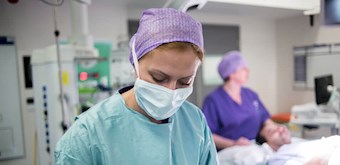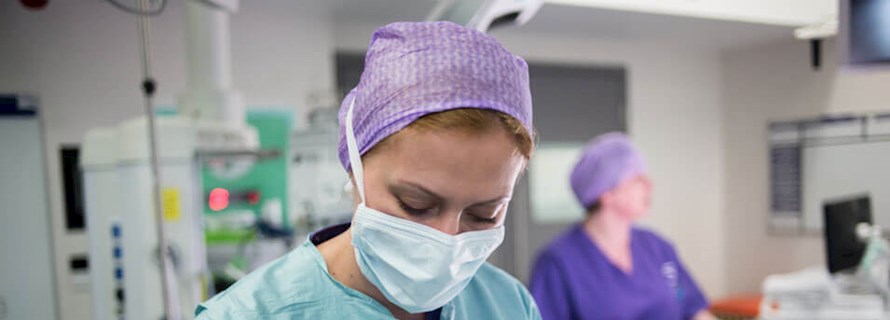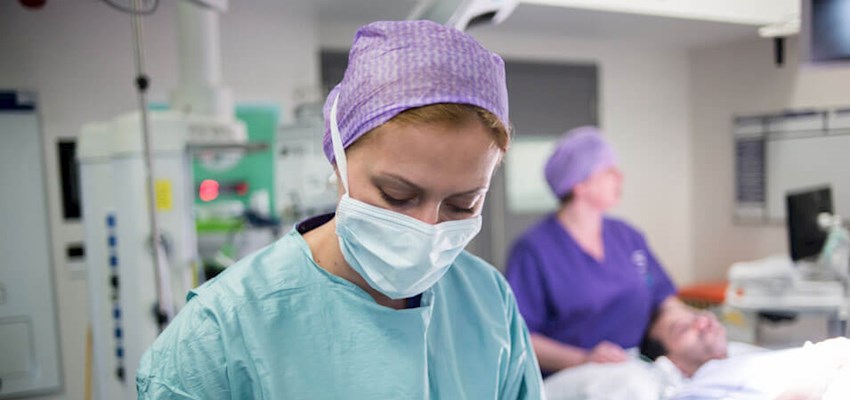ERCP
Endoscopic retrograde cholangiopancreatography
A combined endoscopic and X-ray technique used to diagnose and treat a range of pancreatic and bile duct problems
What is an ERCP?
An ERCP is used to examine the pancreas and bile ducts.
The pancreas and bile ducts form part of the digestive system. The bile ducts carry bile, a substance that digests fat, from the liver and gallbladder to the small intestine. The pancreas produces substances that regulate blood sugar and help digest food.
During an ERCP, a tiny camera on the end of a narrow, flexible tube (an endoscope) is passed through the mouth and into the small intestine to see the pancreas and bile ducts.
Images are fed back to a computer for a consultant to analyse. An X-ray is taken at the same time to look for blockages such as tumours or gallstones. It's possible to have gallstones removed or a stent put in place to open narrow bile ducts as part of the same procedure.
The pancreas and bile ducts form part of the digestive system. The bile ducts carry bile, a substance that digests fat, from the liver and gallbladder to the small intestine. The pancreas produces substances that regulate blood sugar and help digest food.
During an ERCP, a tiny camera on the end of a narrow, flexible tube (an endoscope) is passed through the mouth and into the small intestine to see the pancreas and bile ducts.
Images are fed back to a computer for a consultant to analyse. An X-ray is taken at the same time to look for blockages such as tumours or gallstones. It's possible to have gallstones removed or a stent put in place to open narrow bile ducts as part of the same procedure.
Need to know
-
What happens during an ERCP? icon plus
In the treatment room you will be asked to lie down on an examination table and given a local anaesthetic to numb your throat. Your consultant will then carefully feed the endoscope down your oesophagus (the tube connecting your mouth to your stomach) into your small intestine. A small camera at the end of the endoscope will send images to a monitor. The endoscope pumps air into your stomach and small intestine, making it easier for your consultant to view inside your intestine. They may also inject a special dye to make the ducts more visible under X-ray. Your consultant will locate the opening where the bile and pancreatic ducts empty into the small intestine and place a catheter into the ducts. -
How to prepare icon plus
Your consultant will provide information on preparation before your ERCP. -
After your procedure icon plus
Having an endoscope inserted, will likely mean you will experience a sore throat for several days following the procedure. You may also experience bloating or nausea. These symptoms should pass. You should be able to return home on the same day, but may have to stay in hospital overnight depending on the rate of your recovery. Your consultant will share your results with you once you have recovered.
Our ERCP consultants
We're proud to work with leading gastric experts across a range of subspecialties in gastroenterology, and whose skills are matched by their integrity and compassion.




Our ERCP locations in London
From complex gastric surgery to diagnostic tests and procedures, we provide exceptional gastroenterology care across our network of hospitals, outpatient centres and specialist clinics.
Private ERCP in Birmingham
Contact us about our gastroenterology services
Our helpline advisors can assist with enquiries about booking an appointment with a gastroenterologist.
020 7079 4344
This content is intended for general information only and does not replace the need for personal advice from a qualified health professional.